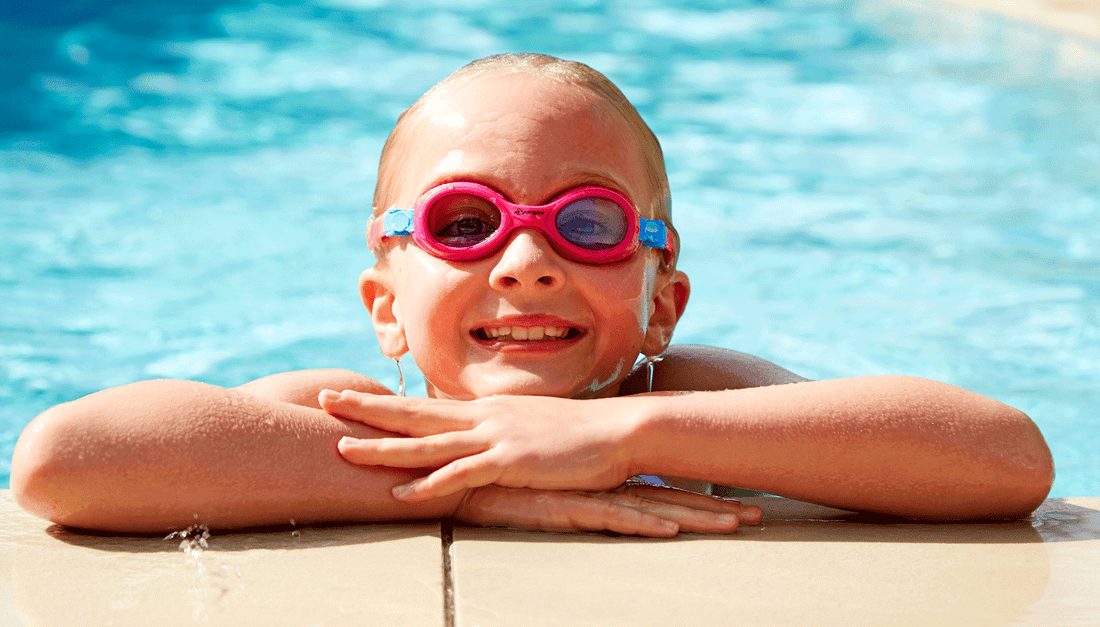Eye Protection - The Neat And Dirty
Protecting the Eyes from Chlorine
Chlorine is still a necessity for pool sanitation and the rewards of eliminating the spread of water-borne bacteria and illness far outweigh the risks, so it’s a chemical you are sure to encounter again and again. However, rather than avoiding the pool altogether, take a few safety precautions to enjoy swimming while also keeping your eyes protected.Use water-tight goggles when swimming in a chlorinated pool. Not only will you be able to see clearly
underwater, you eliminate the risk of eye irritation and infection. Do not wear contact lenses in the pool. Bacteria can become trapped between your eye and the lens and cause serious complications. If you do have to wear them, immediately clean with solution after leaving the pool. When experiencing the symptoms of chlorine irritation, use lubricating eye drops to help rebuild the tear film on your eyes. (1)
If my goggles fall off, then what?
Although not usually a problem, there are all kinds of bugs living in swimming pools…and also in freshwater swimming sites, like lakes and rivers. One of these creatures, called acanthamoeba, can cause sever pain and damage to your eyes, and may even result in the need for a corneal transplant, says Dr. Burt Dubow from the website All About Vision.
Blurry vision as a result of freshwater swimming is usually attributed to the cleanliness of the water. Certain types of bacteria and algae can be especially harsh on your eyes. One of the most common is called cyanobacteria, also known as pond scum. Cyanobacteria is often a result of warm, stagnant waters—so the best way to avoid this is to swim in lakes that are sparkling clear and pristine. (2)

